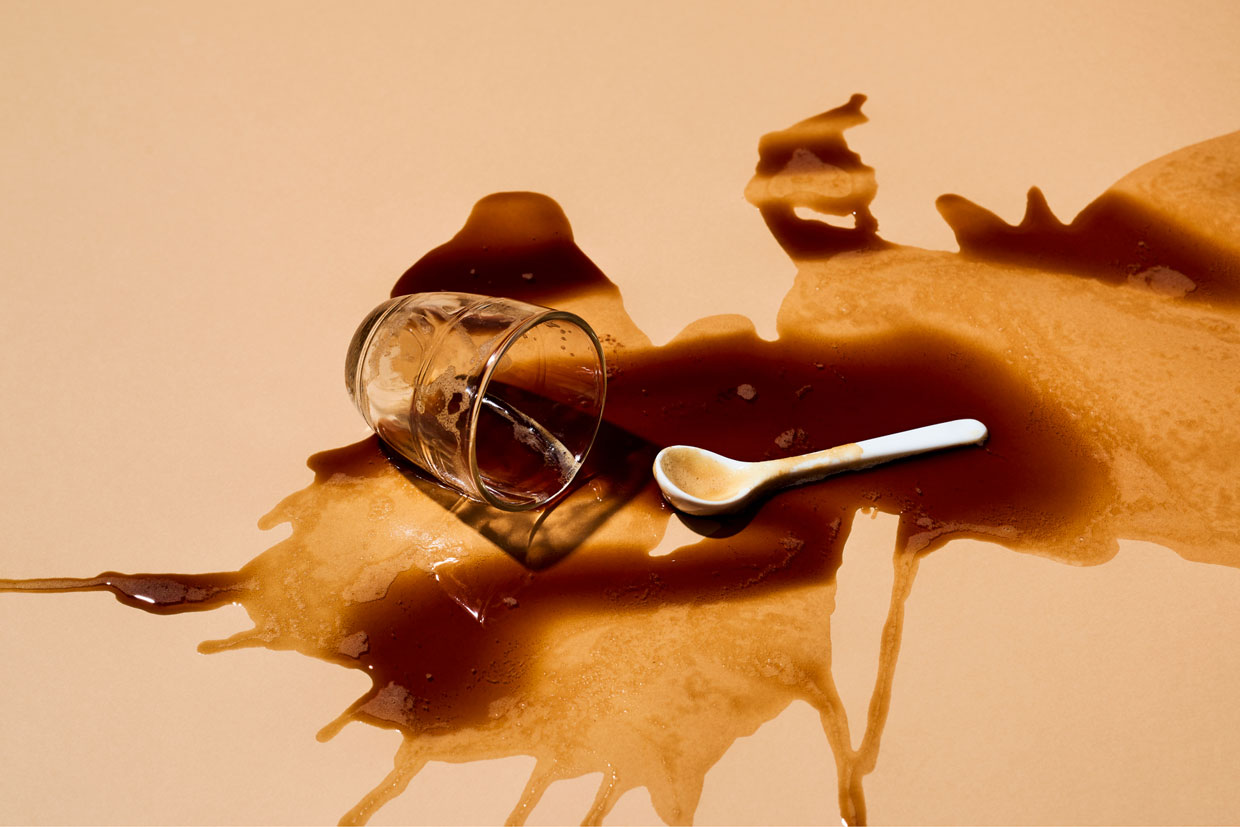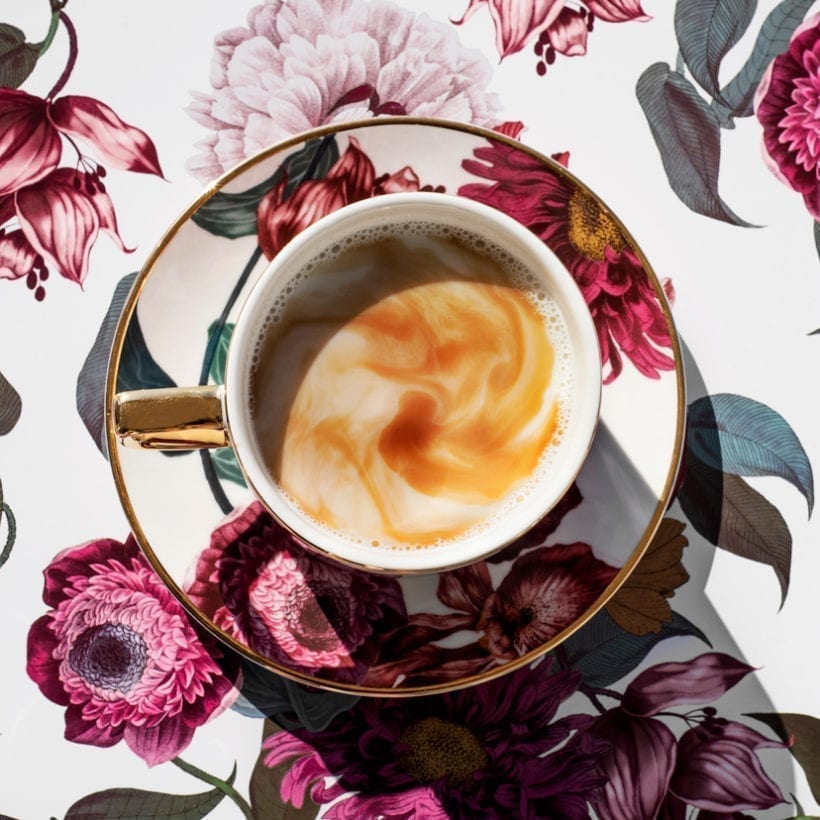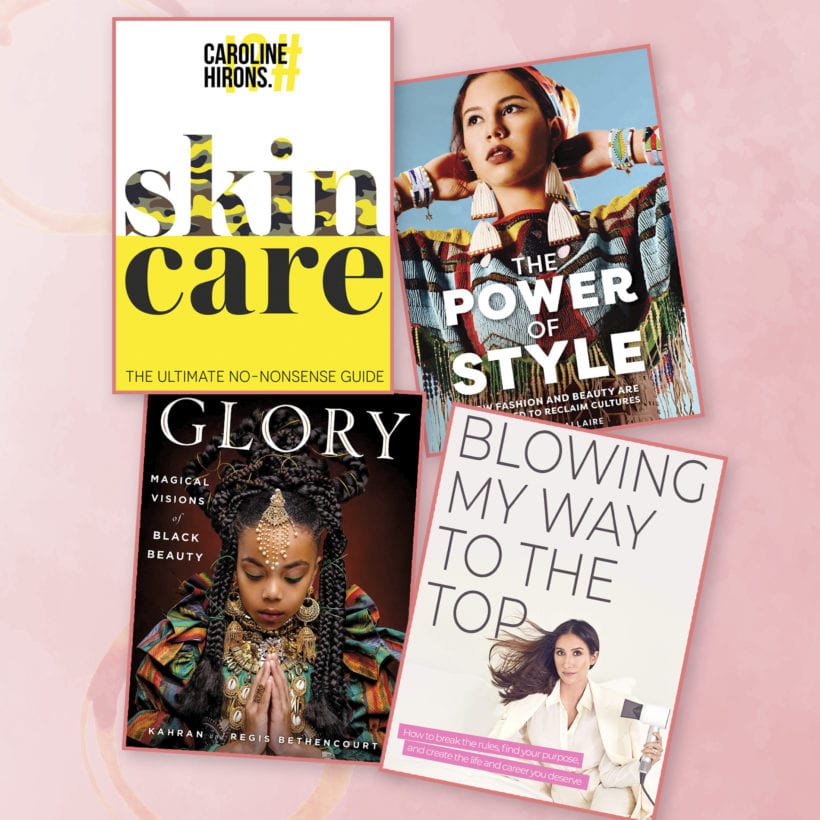I believe that coffee is its own food group. The smell of freshly brewed beans, the “first sip feeling”, or the 15-minute escape to the drive-thru — the effects of caffeine is such a sensory experience. Even if my coffee is microwaved six times by noon (hello, mom coffee). The taste, smell, and my little morning ritual make coffee an integral part of my day.
For many, coffee is an innocent enough vice. I, on the other hand, struggle with anxiety and OCD plus a health condition that is fueled by inflammation. So technically, most experts have agreed when telling me that coffee and I aren’t exactly the best mix. I’m usually a rule follower, but coffee is just one thing I can’t go without. It’s one of life’s simplest pleasures and it helps me to function in the wee hours of the morning when my daughter wakes up.

If you’re anything like me and the caffeine coffee tends to kick up your anxiety a notch, you’re not alone. Finding a balance and doing the right thing for your mental and physical health is so important. So, we decided to find out more about the relationship between caffeine and anxiety, and if or when you should cut back.
The Effects of Caffeine on Anxiety
There is a direct correlation between caffeine and anxiety, and caffeine is found in abundance within our beloved coffee beans. In general, a limit of up to 400mg of caffeine per day is recommended for most healthy adults (200mg if you’re pregnant) and that can be found in just four cups of coffee — less if it’s an especially strong brew or blend.
Excessive intake of caffeine can result in side effects that include headaches, insomnia, irritability, nervousness, jitters, fast heartbeat, and more. And yes, these are also all symptoms of anxiety, too.
Studies have shown that individuals with Generalized Anxiety Disorder (or GAD) are “abnormally sensitive to caffeine” and US News and World Report explains that “excessive or high intake of caffeine has been shown by studios to increase risk of anxiety, especially panic attacks, particularly in sensitive individuals such as those already suffering from psychiatric conditions, and in adolescents and others who are genetically predisposed.”
The American Psychological Association also states, “people with underlying mental health issues may be more susceptible” as “a review of eight studies found that caffeine aggravated symptoms of anxiety and panic disorder.” Symptoms include heart palpitations, restlessness, chest tightness, and hot flushes.

So, it’s important to monitor your caffeine and coffee intake if you have any pre-existing conditions. Without going cold turkey, the APA offers some helpful and healthy ways to be caffeine “smart.” These include:
- Avoid drinking coffee on an empty stomach. Coffee can jumpstart the production of stomach acid and without food in there, it could cause indigestion, heartburn, and even damage your stomach’s lining.
- Delaying your first sip until at least an hour after you wake up (when your cortisol levels are lower)
- Consider drinking occasionally for a functional boost, instead of daily
- Avoid caffeine six hours before bedtime to reduce interference with sleep
If it’s possible, there are certainly health benefits to quitting caffeine, too. Studies have shown that being caffeine-free can lead to improved sleep, more balanced hormones, fewer headaches, lessen symptoms of GERD, and even better skin.
Though the effects will differ for everyone, anecdotally, one woman quit coffee for a little over a month and noticed “small improvements” and “more moments of calm.”
Should You Quit Caffeine?
If you’re curious about the specific relationship between your diagnosis or symptoms and caffeine, of course, the best person to discuss your concerns with is your physician. They can help you track your symptoms, recommend a “safe” or “ideal” daily intake, and offer other alternatives, too. According to Kelley Stevens, MA, LMFT in Los Angeles, California, most people can still safely consume caffeine if they have anxiety. However, “if you notice that you feel worse after, then consider alternatives” like decaf or herbal tea, which has around 7mg per cup as opposed to 70-140 mg in a regular cup of coffee.
Consuming too much caffeine can cause, “bodily sensations that feel similar to those of anxiety. If you are someone who struggles with anxiety, the side effects can cause you to feel like you are getting anxious, and thus trigger actual anxiety,” says Stevens. It’s a slippery slope.
So, it’s best to keep an eye on your caffeine intake and notice any changes in your feelings or thoughts if you may have imbibed a bit too much. If unpleasant symptoms do pop up, drink some water, take a walk, and “remind yourself that the jittery feelings will pass in a couple of hours,” says Stevens.
We only recommend products we have independently researched, tested, and loved. If you purchase a product found through our links, Sunday Edit may earn an affiliate commission.








